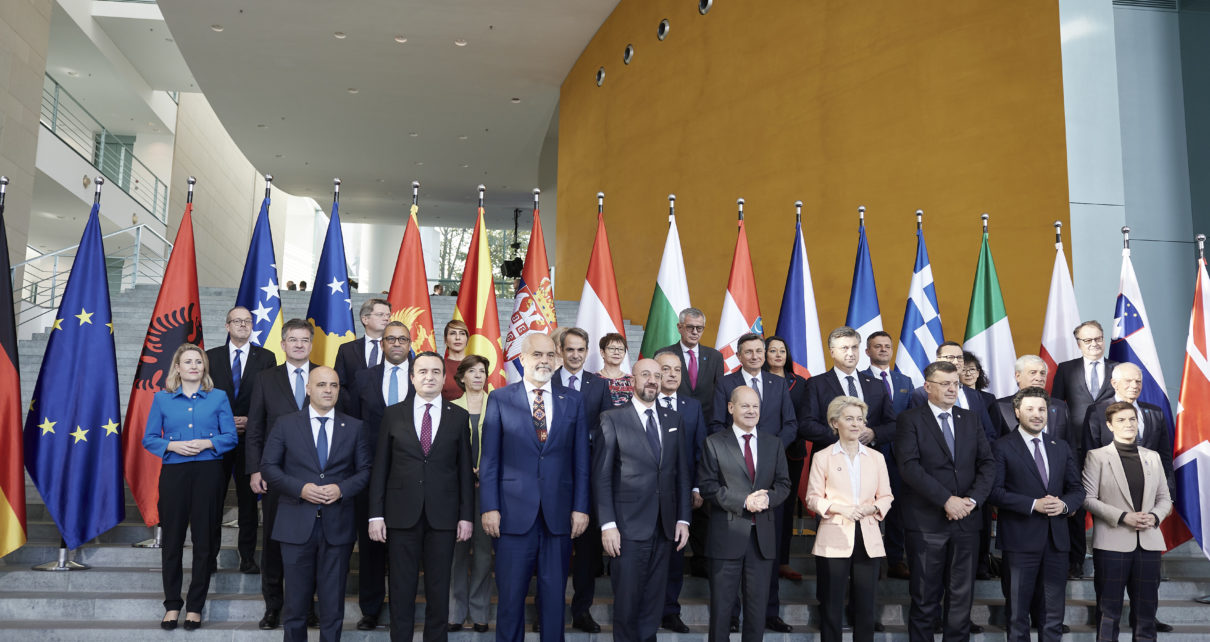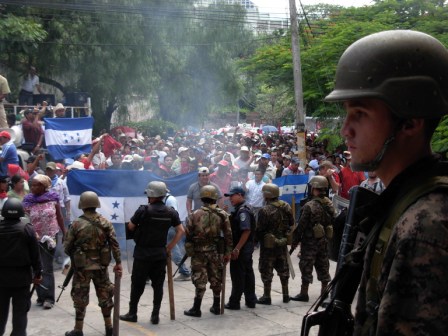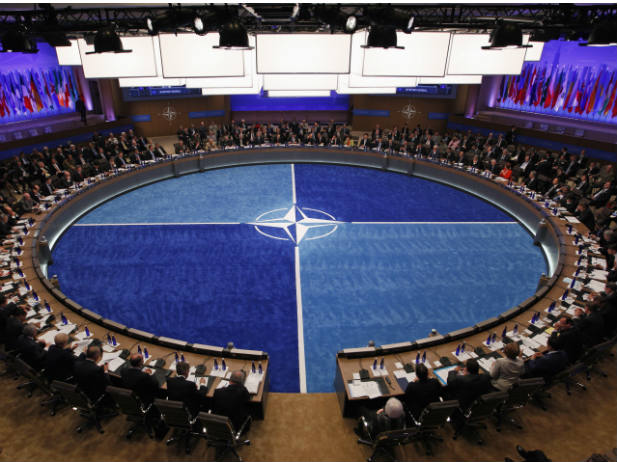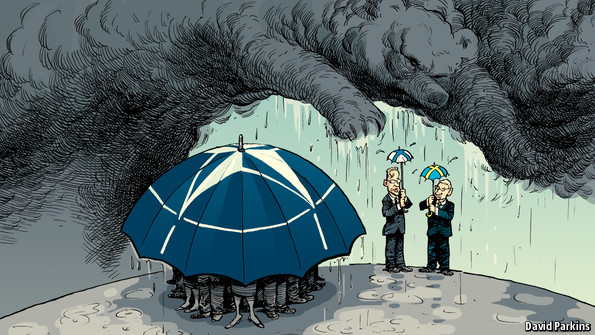The Russian invasion of Ukraine has prompted the escalation of hybrid threats–the European Centre of Excellence for Countering Hybrid Threats (CoE) identifies 13 threat domains, including disinformation campaigns, cyberwarfare, local media partnerships, economic investments, and sociopolitical coercion–in the region of the Western Balkans. For example, between July and August of 2022, Montenegro, Albania, and Kosovo fell victim to a series of cyber-attacks targeting their online account and data security systems. The increasing frequency and devastation of these attacks, among other hybrid operations in the region, cannot be ignored. In studying these cases and recognizing the hostile interference of external actors–in particular Russia–in the Western Balkans, the NATO community can be better informed about the long-term implications of hybrid warfare on NATO enlargement and transnational security.
While hybrid warfare conceptually precedes the war in Ukraine, the conflict is part of a set of developments in the twenty-first century that have necessarily nurtured an environment in which hybrid policy mechanisms can proliferate at an unprecedented level among Western Balkan actors. Of the most prominent players in the region, Russia is identified by the European Union Institute for Security Studies (EUISS) as the foremost pursuer and beneficiary of hybrid operations in the Western Balkans, notably since the escalation of the Ukrainian conflict in 2022. This designation is accredited to Russia’s primarily political motivations in the Western Balkans.
Florian Bieber, Political Scientist and Director of the Centre for Southeast European Studies at the University of Graz, compares Russia’s uniquely political ambitions in the region to those of actors with vested economic interests, such as China. The People’s Republic of China (PRC) carries out hybrid operations with primarily economic motivations and less-than-explicit political agendas. The PRC has made significant financial investments in the Western Balkan region since the early 2010s. As well, several of the region’s members have joined the Belt and Road Initiative (BRI), the global infrastructure project headed by the PRC.
In contrast, Russia presents itself as an opportunistic actor with primarily political aspirations. This political characterization of Russian involvement in the Western Balkans makes sense considering the region’s history as an arena of “intense rivalry between Russia and NATO to establish geopolitical spheres of influence.” In direct opposition to NATO’s goals of enlargement and its promotion of Western values in the Balkans, Russia benefits from hybrid operations that thwart NATO integration, weaken public perceptions of the West and Western narratives, and distract from their protracted conflicts in Georgia and Ukraine.
The case of the Kosovo-Serbian license plate conflict, wherein Russia was able to benefit from disinformation campaigns and the feeding of local media outlets with anti-NATO narratives to exacerbate existing tensions, is a notable example of such efforts. EUvsDisinfo reported on disinformation propagated by Actualidad-RT, a Russian government-controlled news network, publicly stating that the involvement of the NATO-led Kosovo Force (KFOR) is a “constant risk for the population,” and that the conflict was a pretense for NATO to “attack Kosovo Serbs.”
This is just one of many examples where public media is manipulated to encourage anti-Western attitudes. The Western Balkans are particularly susceptible to information manipulation and disinformation campaigns from foreign actors due to low rates of media literacy. In 2018, the Open Society Institute’s Media Literacy Index found that of all other European countries, Albania, Montenegro, Bosnia and Herzegovina, Serbia, and North Macedonia have the lowest rates of media freedom and education, and lack trust in government structures and institutions, making them especially vulnerable to mis- and disinformation. The cultivation of pro-Russian and anti-Western attitudes via this information manipulation, combined with the political and economic vulnerabilities of the Western Balkan states, undermines the modern liberal order of the West and weakens public opinion of NATO in the region.
While Russia is not always the culpable actor of these hybrid campaigns, they are the beneficiary. The loss of credibility that the West experiences serves Russian strategic interests by dividing and distracting Western organizations, including NATO. The consequences of these hybrid operations are observable in real time. From 2020 to 2022, the Balkan Barometer, run by the Regional Cooperation Council, recorded a drop in favourable perceptions of the EU and NATO among Western Balkan states. Of the six countries included, Serbia had the lowest ranking of opinions on NATO membership– unsurprising given the historically tense Serbia-NATO relations. Despite having among the highest rates of positive attitudes towards NATO membership, Kosovo still saw a 13 percent drop in this category. Studies of this kind expose the potential for hybrid operations to dismantle Euro-Atlantic integration projects and therefore endanger transnational security.
While the EU and NATO have developed frameworks, such as the Rapid Alert System (RAS), to tackle hybrid operations in recent years, the unconventional nature of hybrid threats allows foreign actors to “blur the lines between legal and illegal,” making it difficult for Western actors to detect, deter, and counter hybrid attacks. Cyber-attacks, disinformation campaigns, economic coercion, and strategic partnerships with local governments and media not only threaten the security and stability of Western Balkan actors, but they also undermine the self-confidence of the West and its unification efforts. Actors like Russia do not seek a full-scale hybrid war; rather, they aim to test the West’s willingness to stand up to their commitments and democratic values. Failure on the part of the West to do so, especially in a time of war, can further enable foreign interference, inflate existing domestic conflicts in the region, and push Western Balkan countries into dangerous political corners.
Photo: ‘Βερολίνο – Western Balkans Summit 2022’ by Dimitris Papamitsos / Greek Prime Minister’s Office. Licensed from Flickr under CC BY-NC 2.0.
Disclaimer: Any views or opinions expressed in articles are solely those of the authors and do not necessarily represent the views of the NATO Association of Canada.




